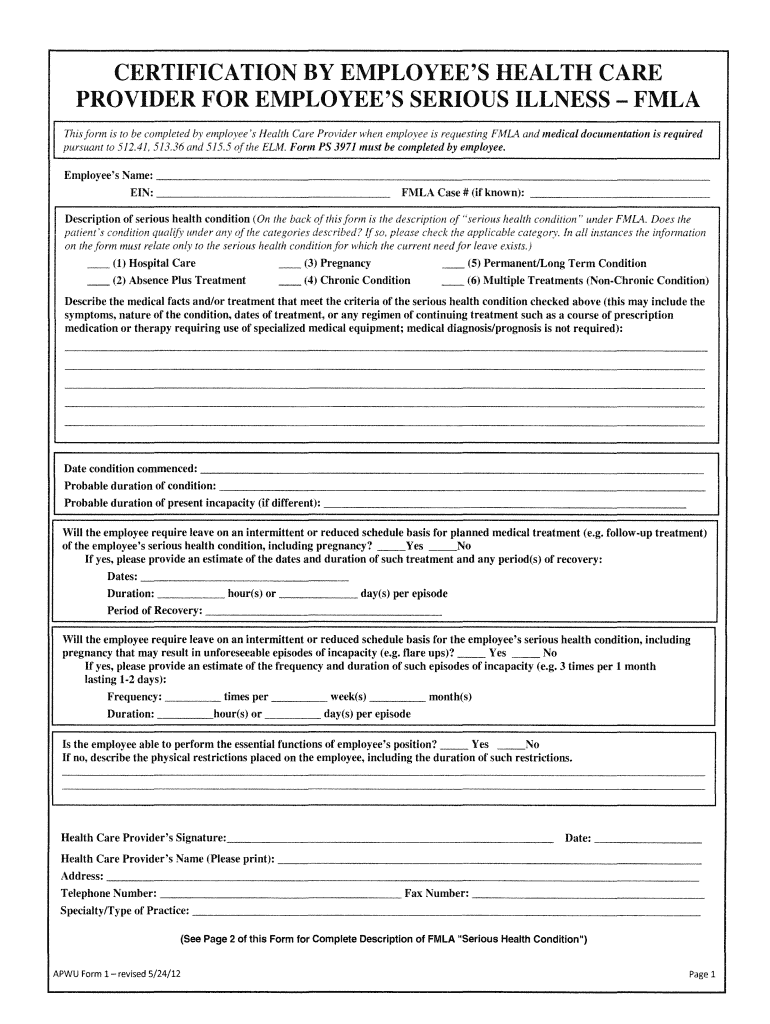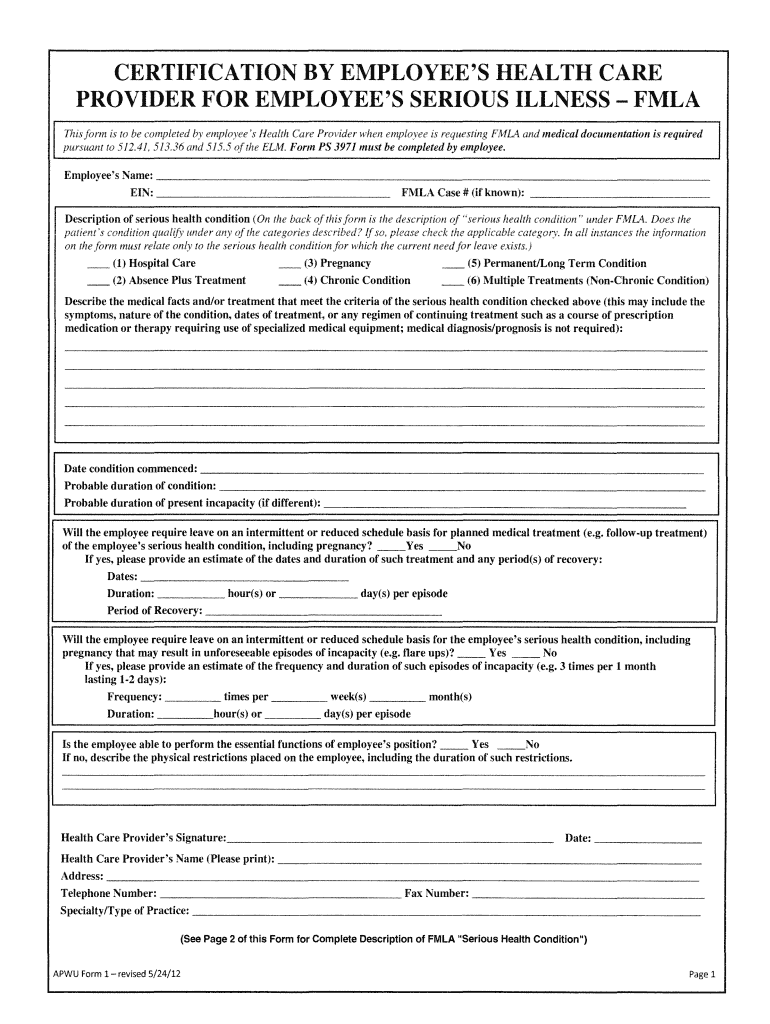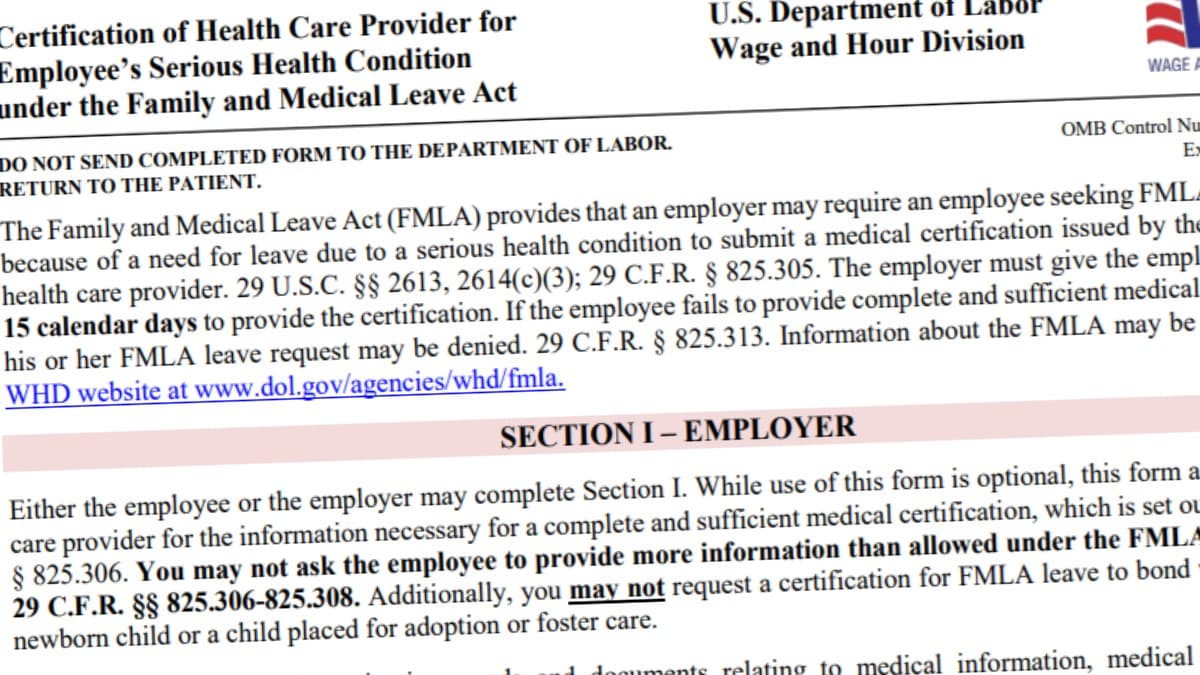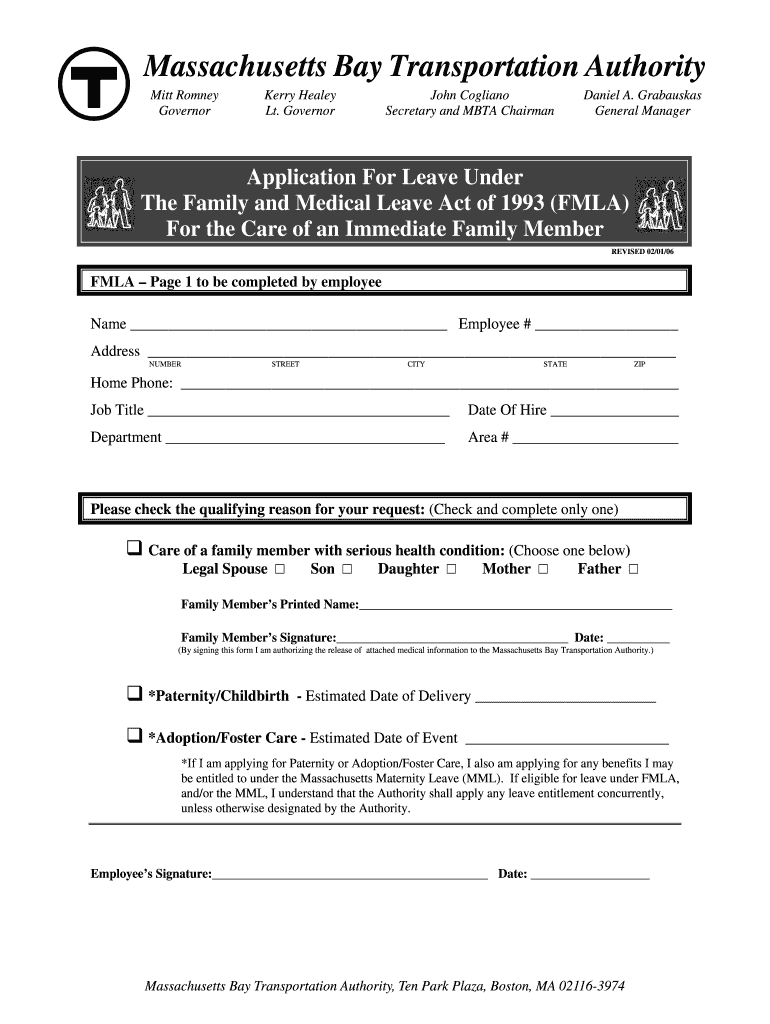5 Key Times to File Your FMLA Paperwork

In today's fast-paced work environment, understanding when to file your Family and Medical Leave Act (FMLA) paperwork can be crucial. This federal law provides eligible employees with up to 12 weeks of unpaid, job-protected leave per year for certain family and medical reasons. Knowing the right times to apply for FMLA can help ensure that you're protected during critical life events. Let's dive into five key scenarios where filing your FMLA paperwork is not just a good idea but often necessary.
When You’re Planning for a New Child

The arrival of a new child, whether through birth or adoption, is one of the most significant times in a person’s life. Here’s why and how FMLA can help:
- Paternity or Maternity Leave: Both parents can take FMLA leave to bond with the new addition to the family.
- Pregnancy-Related Conditions: If the mother-to-be has medical conditions related to pregnancy or post-partum, FMLA can cover this period of incapacity.

To prepare:
- Notify your employer well in advance (usually 30 days) if possible, or as soon as possible if the need for leave is unexpected.
- Complete the necessary FMLA forms, which can include medical certification if applicable.
🔍 Note: If the need for leave is foreseeable due to an expected birth, plan to give your employer written notice at least 30 days in advance.
During Serious Health Conditions

If you, your spouse, child, or parent is facing a serious health condition, FMLA provides the time needed for care without the risk of losing your job.
- Personal Health Issues: Whether it’s for surgery, chronic illness, or recovery, FMLA allows for recovery time.
- Caring for Family Members: You might need to care for a spouse, child, or parent with a serious health condition.
| Family Member | Qualifying Conditions |
|---|---|
| You | Inpatient Care, Chronic Conditions, Incapacity for More than 3 Consecutive Calendar Days Requiring Continuing Treatment |
| Spouse, Child, Parent | Hospitalization, Treatment, Recovery from Serious Health Conditions |

To use FMLA in these situations:
- Provide medical certification detailing the condition and the need for leave.
- Maintain open communication with your employer about your condition and expected leave duration.
💡 Note: The definition of a "serious health condition" can be complex, so consulting with HR or a legal advisor can provide clarity on whether your situation qualifies.
When You Need to Care for an Ill Family Member

There are times when immediate family members require your care, making it impossible to work. FMLA allows you to:
- Manage Care: Help with appointments, treatment, or hospital stays.
- Provide Emotional Support: Ensure your loved one has the emotional support they need during recovery or treatment.

The process involves:
- Obtaining medical certification to validate the need for your care.
- Discussing a potential intermittent leave schedule if your caregiving requires short-term leaves.
Before or After Military Deployment

Military families have unique needs, especially surrounding deployment, and FMLA recognizes this through:
- Deployment Preparation: Time for making necessary arrangements before deployment.
- Reintegration: Helping a servicemember reintegrate into family life post-deployment.
To file FMLA for these military-specific events:
- Inform your employer of your intent to take leave, including specifics about the deployment or military service.
- Obtain military documentation or certification to support your FMLA request.
🌟 Note: Special provisions under FMLA cover military family leave events, allowing up to 26 weeks of leave in certain circumstances.
Addressing Unforeseen Emergencies

Life can throw unexpected challenges our way, and FMLA can cover unforeseen emergencies like:
- Natural Disasters: FMLA can be utilized if your home is affected by a natural disaster requiring your presence.
- Family Crises: Sudden family health issues, accidents, or other urgent situations.
When facing these situations:
- Act quickly to notify your employer of your need for leave.
- Provide documentation to support your leave, such as medical records or official disaster declarations.
In conclusion, understanding when to file your FMLA paperwork is essential for maintaining job security during life's most challenging moments. From welcoming a new child to coping with personal or family health issues, FMLA ensures that you can take the necessary time off without losing your employment. By communicating early with your employer and providing the necessary documentation, you can utilize this important benefit with confidence. Remember, FMLA is not just a legal right; it's a safety net that helps maintain the balance between work and life during times of personal need or crisis.
How do I know if I’m eligible for FMLA?

+
To be eligible for FMLA, you must work for a covered employer, have worked for the employer for at least 12 months, have at least 1,250 hours of service during the 12 months before the start of leave, and work at a location where the employer has at least 50 employees within 75 miles.
Can FMLA leave be taken intermittently?

+
Yes, FMLA leave can be taken intermittently if medically necessary or for the care of a family member. It’s important to discuss with your employer the possibility of an intermittent leave schedule.
What documentation is required for FMLA leave?

+
Depending on the reason for leave, you may need to provide medical certification from a healthcare provider, military service documentation, or other relevant official documents to support your request.
Can FMLA be used for my own serious health condition?

+
Yes, FMLA covers leaves for your own serious health condition. This includes any period of incapacity due to chronic conditions, treatment, or recovery.
What happens if my employer denies my FMLA request?

+
If your employer denies your FMLA request and you believe it’s unjust or due to non-compliance with FMLA regulations, you may file a complaint with the Wage and Hour Division of the U.S. Department of Labor or seek legal counsel.



